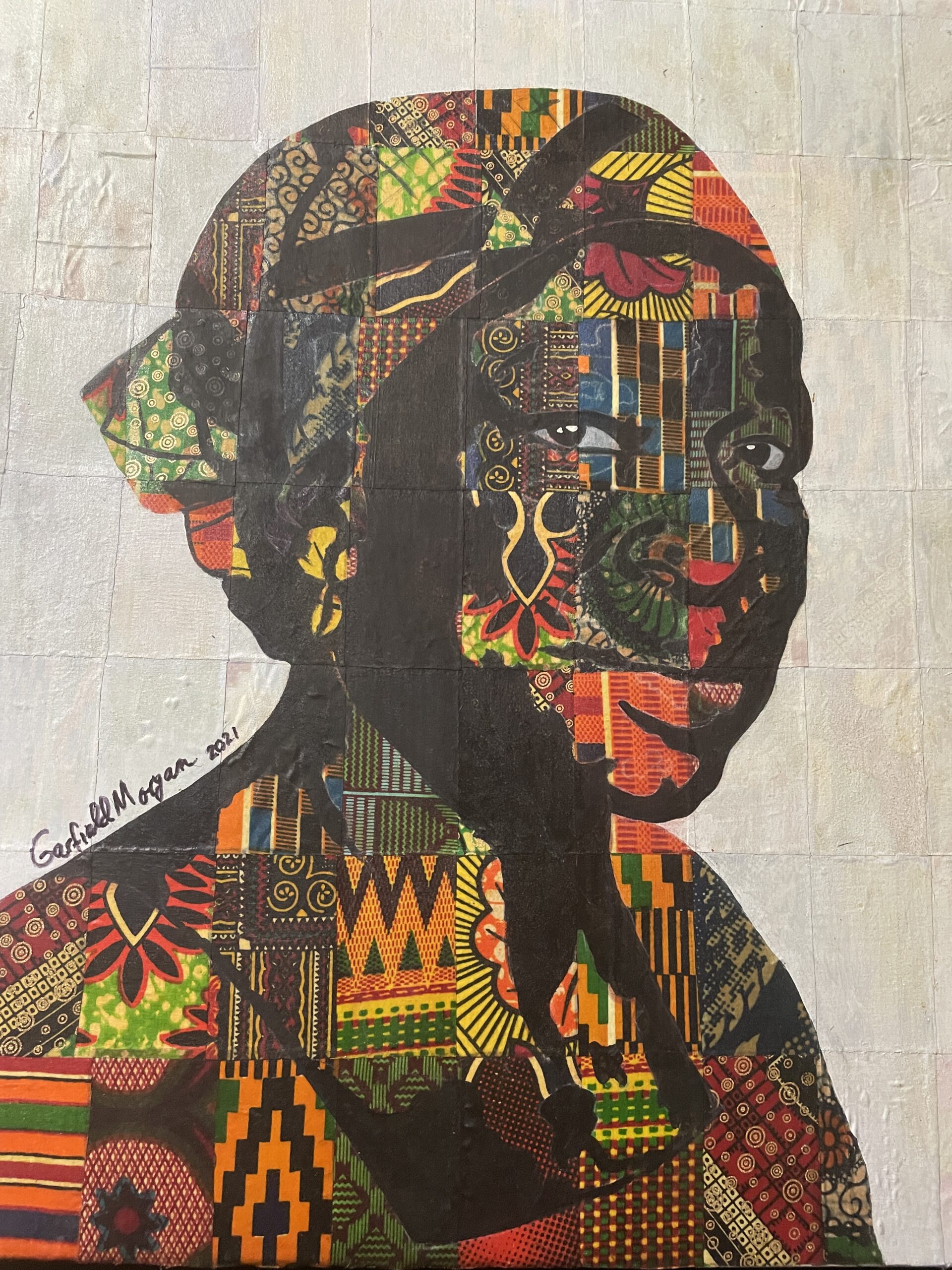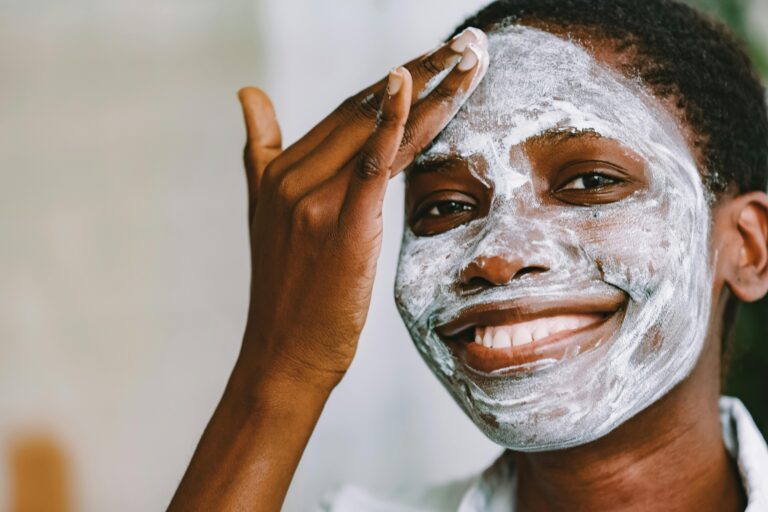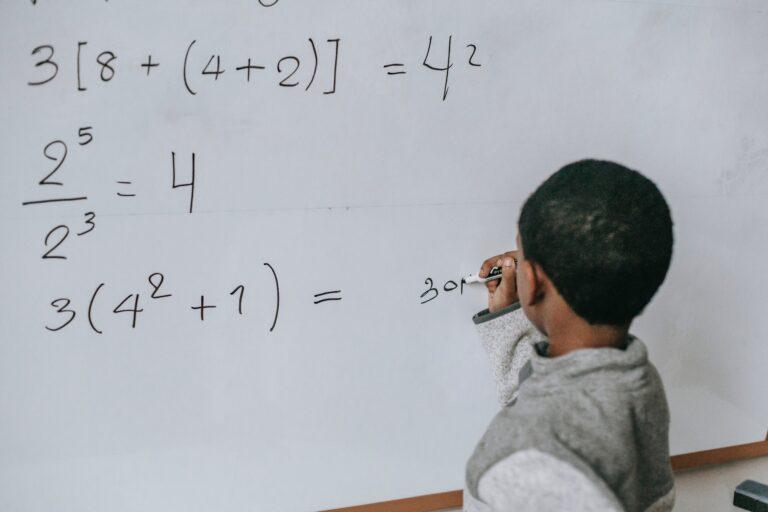Africa news roundup

April 21-36, 2024
Ghana
NDC announces running mate
The opposition National Democratic Congress (NDC) has officially outdoored (named) its presidential running mate, Professor Naana Jane Opoku-Agyemang for the 2024 December general elections. The event took place at the Kofi Ohene Konadu Auditorium at the University of Professional Studies Accra (UPSA) on Wednesday, 24 April. Several key dignitaries including Members of Parliament of the NDC, the National Chairman, the General Secretary, the Council of Elders, and stalwarts of the party, among others, converged at UPSA to introduce Professor Naana Jane Opoku-Agyemang.
Speaking at the event, the former president and flagbearer of the NDC, John Mahama said that Ghana urgently needs leadership that inspires trust and belief in a better future. “Ghana needs a leadership that will place value on integrity, truth and accountability. Ghana needs a leadership that will roll up its sleeves and accept responsibility for our current reality and face the current storm stoically and steer the ship of state into safer and calmer waters”, he said. Expressing confidence in his selection, John Mahama also said if there was any indication of intent to think outside the box, to be innovative, and to use the best human resources to deliver the ‘Ghana We Want’, then it is in his choice of Professor Jane Naana Opoku-Agyemang as his running mate. “As my running mate and potential Vice President of Ghana going into the 2024 general elections, I do not doubt this as a globally acclaimed credential attest to that. Naana Jane is a woman of unquestionable integrity and whose reputation for honesty and ethical behaviour is unparalleled”. Should the NDC win the December elections, Professor Naana Jane will become the first female vice president of Ghana.
Nigeria
School closed over bullying allegations
Nigerian authorities have temporarily shut down the Lead British international school in the capital, Abuja, over a bullying incident involving some of its students, local media reported. During the week, videos surfaced on social media appearing to show students at the Lead British International School assaulting a junior student. The videos have since sparked sharp criticism online and angry parents were seen storming the school with the hashtag #JusticeForNamtira trending on various social media platforms.
A statement released by the school st its deep concern about happenings in the school. The school said it was committed to conducting a thorough inquiry into the bullying incident. On Tuesday 22 April, the school authorities announced a three-day closure to enable them to probe the matter. Kabiru Musa, a senior education official, said the country’s Minister of Women Affairs Uju Kennedy-Ohaneye ordered the closure of the school.
The Lead British international school was established in 2007 and offers a British curriculum blended with the Nigerian education system. It is rated as one of the most expensive schools in Nigeria, according to the local media.
South Africa
Military deployment extended to DRC
President Cyril Ramaphosa has announced the extension of the South African National Defence Force’s (SANDF) deployment in the Democratic Republic of Congo (DRC). The announcement comes at a time when the United Nations organisation stabilization mission prepares to exit the DRC. The move by South Africa is part of its commitment to the United Nations Organisation Stabilisation Mission (MONUSCO) and the Southern African Development Community’s (SADC) efforts in the region. The SANDF’s continued presence in the DRC, will involve 1,198 personnel and is aimed at neutralising negative forces and restoring peace. This deployment is said to have begun on 16 April 2024 and is expected to end on 20 December 2024. The deployment is also expected to cost approximately R805 million.
While notifying the National Assembly, President Ramaphosa said he had extended the employment of 200 SANDF members “in order to counter the threat of piracy and other related illegal maritime activities along the Southern African coast of the Indian Ocean”. With 1,144 military personnel, South Africa was number five on the top ten military contributing countries to MONUSCO. South Africa. along with Malawi and Tanzania, make up the mission’s Force Intervention Brigade (FIB), the lone formation in the UN’s various peacekeeping structures to have an offensive clause in its mandate. India, with 1834 personnel, is contributing the largest troop to MONUSCO. It is followed closely by Pakistan with 1,767 personnel, then Bangladesh with 1,640 personnels and Nepal with 1,147 personnel before South Africa in fifth place.
Liberia
Lucas Richards to face the law in the USA
Lucas Richards, the American missionary accused and later acquitted of attempted murder of Jessica Lloyd, is said to be prosecuted in the United States for his crimes committed against Miss Lloyd. Addressing the media, the chairman of advocacy group Solidary and Trust for a New Day (STAND) Mulbah Morlu, described the ruling from the Liberian Court as barbaric, cruel, and beyond the imagination of mankind. “We have concluded [discussions] with partners in the United States and other American lawyers for the prosecution of Richards in the United States. This matter is not about America. It is about one man attempting to kill an innocent lady in cold blood and broad daylight. Yet our judge says he’s not guilty. He will not go with impunity. We will use the laws of America to seek justice for Jessica Lloyd. The verdict came after a legal battle between the prosecution, represented by the Government of Liberia, and the defence, representing the accused.
In September 2023, Jessica Lloyd, a young Liberian lady, nearly lost her life when her throat was slit by an American missionary named Lucas Richards. Richards was sent to Liberia by Creekside Church in Urbandale, Iowa, to support the church’s work in rural Liberia, and Jessica was his student. Although legally married in the US, Richards married Jessica at a traditional Liberian wedding in Monrovia in the presence of her parents and other family members. Jessica became pregnant with Richards’ child, but he illegally administered medication to abort the pregnancy and continued to be involved with her. When the church in Liberia became aware of the affair, he attempted to kill Jessica by the roadside with a knife and also physically attacked her with a wrench. However, he was caught in the act and apprehended by passersby, who handed him over to the Liberian National Police.
Kenya
Residents of Nairobi grapples with aftermath of flood
Residents of Nairobi are grappling with the aftermath of severe flooding as rains continue to pour in several parts of Kenya. The rains have been reported to kill at least four people in Mathare and destroyed severalhomes which has caused damage to several properties with many residents in parts of Mathare left without shelter or basic necessities. Many houses have been marooned as the Nairobi River broke its banks and residents have been moving out of the area. Amidst the devastation, many residents have lamented the government’s absence during their hour of need.
Deadly floods have been wreaking havoc in many parts of East Africa as the region faces torrential rainfall, In Kenya, alone, 35 people have died since mid-March in flooding events that have affected more than 100,000 people. The Kenyan government agency in charge of roads on Monday April 22 warned Nairobi residents to avoid flooded highways, including one that leads to the coastal city of Mombasa. Those who live by the Nairobi River were also urged to move to higher ground. Flooding and mudslides have also been reported in western Kenya.
Burundi has been calling for international help to deal with the aftermath of the floods.
Sierra Leone
Health ministry to address electricity issues at hospitals
The government has come under severe criticism following the death of a child at the Freetown Maternity hospital on Tuesday 23 April. According to citizens, the government’s indifference in the face of acute electricity outages across the country is a cause for concern. In response to the outcries, the Ministry of Health yesterday published a statement promising to put measures in place to prevent suffering and deaths in hospitals due to lack of electricity. However, the statement stops short of supporting calls by many in Sierra Leone to ensure that the Ministry of Finance can find the cash to pay for fuel that will power generators in hospitals, until comprehensive measures are put in place to sustainably end the nationwide electricity crisis.
The statement also went on to outline some steps taken by the ministry, so far, to manage the situation. According to the statement, the Ministry of Health through the help of its partners have provided added power generating capacity to Hospital including the Princess Christian Maternity hospital and the Ola During Children Hospital. To improve the situation, the ministry through the statement says it is in discussions with the ministry of energy to prioritize energy supply to major hospitals across the nation. The ministry said it is also putting measures in place to address leadership flaws at the Princess Christian Maternity hospital.
Togo
Opposition calls for massive turnout ahead of elections
An opposition movement is calling for a massive turnout on the 29 April legislative elections in which a disputed constitutional reform has become the central issue. Political tensions are at an all-time high in Togo since lawmakers this month approved the reform that opposition parties believe allows President Faure Gnassingbe, put in office by the military in 2005, to extend his grip on power. Gnassingbe succeeded his father who ruled the small West African state for nearly four decades after leading a coup. The National Alliance for Change (ANC) gathered in a Lome district to convince people to show up and vote come April 29. “We must have a majority at the end of these elections to stop the disorder in the parliament,” said Francis Pedro Amuzu, an ANC candidate in the elections.
Under the new constitution, the presidency becomes a symbolic role elected by lawmakers for a four-year term. Political power will rest with a new president of the council of ministers, a kind of prime minister’s post, which the opposition fears Gnassingbe will take to allow him to bypass presidential term limits. The position will be automatically held by the leader of the majority party in parliament. Gnassingbe is chief of the Union for the Republic Party (UNIR) that dominates parliament. ANC leader Jean Pierre Fabre said the constitutional amendment “has only one objective: Keeping Faure Gnassingbe in power for life”. Ruling party representatives say the new parliamentary system strengthens Togo’s democracy.
Cote d’Ivoire
Permanent cocoa office established in Accra
Cote d’Ivoire has established a permanent office in Accra, the capital of Ghana to spearhead the interests of cocoa farmers. In collaboration with Ghana, the move aims to build a vibrant cocoa sector to guarantee the income of cocoa farmers in the two countries. President of Ghana H.E Akufo-Addo, at the commissioning and official handing over of the Cote d’Ivoire-Ghana Cocoa Initiative secretariat building, said it is a major step in promoting effective economic development between the two countries.
Ghana and Cote d’Ivoire are responsible for 65 per cent of the world’s cocoa, and the initiative is expected to build a vibrant cocoa sector and to guarantee the income of cocoa farmers. Prime Minister of Cote d’Ivoire Robert Mambé, who represented the President of Cote d’Ivoire, Alassane Ouattara, said Côte d’Ivoire is ready to work with Ghana to ensure that cocoa farmers in the two West African States reap the full benefits of their labour.
Burkina Faso
Soldiers massacre 200 civilians
According to documents shared by the human rights watch, Burkinabe soldiers have massacred some 200 civilians in a day. According to investigations, more than 220 civilians, among them at least 56 children, fell victim to atrocities allegedly committed by the country’s military. The events unfolded on 25 February with the village of Soro bearing witness to the loss of 179 lives, while 44 others perished in the neighboring village of Nondin. Human Rights Watch has labelled these mass killings as some of the most egregious abuses by the army in nearly ten years. Survivors recounted how a convoy of over 100 soldiers descended upon Nondin village shortly after Islamist fighters had passed through the area. The soldiers systematically forced villagers from their homes, gathered them in groups, and mercilessly opened fire, leaving no one spared.
Since publishing the report, authorities have yet to comment on the new development. However, public prosecutor Aly Benjamin Coulibaly has made a public appeal for witnesses to come forward and assist in identifying those responsible for the massacre, initially estimating the death toll at 170. The military has justified these heinous acts as retaliation against villagers accused of aiding Islamist fighters, following an attack on a nearby military camp by insurgent forces in the northern Yatenga province.
Senegal
Gov’t to set up compensation commission
President Bassirou Diomaye Faye has asked Prime Minister Ousmane Sonko to set up a commission to compensate the victims of the events occurring between January 2021 and February 2024. The head of state said he was particularly concerned about strengthening national reconciliation. In his view, this requires justice in the proper handling of the cases of the victims of the events of January 2021 to February 2024, in particular, the bereaved families and the injured. He made this known during a cabinet meeting on Wednesday April 26. According to Faye, the compensation commission must start work as soon as possible to identify the victims and assess the damage suffered, as well as to provide effective care for the injured during their treatment.
According to Amnesty International, no fewer than “60 people have been shot dead during political demonstrations in Senegal over the past three years”. Many others have been injured and still bear the scars of these tragic events in Senegal’s modern political history. The demonstrations were mainly linked to the summoning to court of Ousmane Sonko, the former opposition leader turned head of government, in connection with several cases for which he was being prosecuted for. Sonko’s legal setbacks ultimately prevented him from running in the 2024 presidential elections. However, Senegal’s fifth head of state, 44-year-old Faye, who was elected in the first round on 24 March, appointed Ousmane Sonko as prime minister.
Cameroon
Opposition launches voter registration campaign
Cameroon’s opposition and civil society have launched a mass campaign to combat voter apathy. The goal is to encourage disgruntled youths to register to vote before the August deadline and go to the polls in presidential elections next year, instead of just complaining that longtime President Paul Biya will rig elections to die in power. About 20 opposition and civil society members are rallying people on the streets of Cameroon’s economic capital, Douala, to register to qualify as voters before an August 31 deadline. There are about 15 million potential voters in Cameroon but only about seven million are said to be registered.
Cameroon’s presidential elections will take place in October 2025 on a date to be decided by 91-year-old President Paul Biya, who has been in power for more than four decades. Among the campaigners is Mbah Raoul, spokesperson of the Cameroon Renaissance Movement, or CRM, party. The spokesperson says Cameroon’s opposition and civil society want civilians, especially reluctant youths, to register now and to vote and defend their votes when elections are called. Opposition and civil society estimate that at least half of Cameroon’s 30 million people are 20 years and older and qualified to register and vote in elections as stated in the country’s electoral code.
Rwanda
Cabinet amends decree regulating vehicles
Following a cabinet meeting, chaired by President Paul Kagame, on Thursday, April 25, Cabinet has approved a Ministerial Order determining the model of the national driving license. According to the Rwanda National Police (RNP) people who will pass a driving test using an automatic transmission vehicle will be allowed to drive automatic transmission vehicles in the respective categories. In a post by the RNP on X, “Those who will pass using a manual transmission vehicle will be allowed to drive both manual and automatic transmission vehicles in their respective categories. We will update you when the resolution comes into force”, the development “comes into force when published in the official gazette”. According to Rwanda National Police Spokesperson, ACP Boniface Rutikanga, the development will come into force when published in the official gazette. When operationalized, people found driving a manual vehicle that requires hill start skills, will be legally penalised– like a holder of a license to drive a small car caught driving a truck.
A global and local trend in the motor industry shows that in the last 20 years, production has shifted to automatic vehicles only. While the global market share for automatic vehicles was less than 15 per cent in 1998, less than three per cent of cars sold had manual transmissions in 2016 and Rwanda is no exception. Jean-Luc Mugabo, the sales manager in CFAO Motors Rwanda, Volkswagen Rwanda’s official dealer, in an interview said that 70 per cent of their vehicle sales were of automatic transmission, as such the amendment comes at the right time






